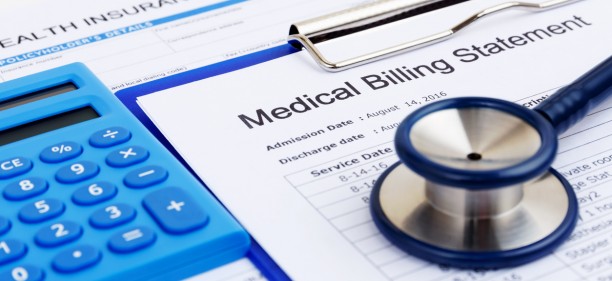What happens to your debt when you die?
If someone dies owing a debt, does the debt go away when they die? The simple answer, according to ConsumerFinance.gov: “No, when someone dies owing a debt, the debt does not go away. Generally, the deceased person’s estate is responsible for paying any unpaid debts.”
Since COVID-19 has plagued our country, we’ve been getting more and more inquiries about “what happens to debt when you die“. As if the stress of high credit card debt and backed payments isn’t enough, there’s the fear of not knowing what happens to your personal debt after you die. In addition to credit card debt, the biggest debt left behind by family members tends to be medical debt due to circumstances related to failing health.
Secondary debt sources upon unexpected death can include private student loan debt, auto loan debt, and obviously mortgages.
With all of these things to consider, how do you know if these debts won’t pass on to your family members? Here are some answers to frequently asked questions about the fate of your debt when you pass away.

Who pays medical bills after death?
Medical bills can be the most complicated to cover after death because this is controlled by state law which can vary widely from state to state. However, it is important to note that medical debt is considered unsecured debt, meaning creditors and lenders aren’t covered in the event that the debt can’t be repaid, which includes if the borrower passes away. This also means that a surviving spouse, family members, and authorized users on the estate are not liable for the deceased person’s medical debt after death.
However, there is a small catch: Medical bills are generally paid first during the probate process, which is the process in which an authorized user is required to handle the payments and inheritance of the estate after death. If there is more than enough equity in an estate to pay off all debts, the probate process begins with paying all bills, medical first. Whatever is left over after all bills are paid is what the inheritance amounts to for next of kin and anyone listed in a written will.
During probate, debt collectors, joint account holders, retirement account issuers, credit card issuers, and all other banking authorities are notified of the death. Those companies will seek a settlement on the remaining debt on the account, but ultimately if the estate of the deceased person doesn’t cover the debt, the debt is wiped out and the creditors and lenders are covered by insurance – it becomes a wash.
Dave Ramsey provides an additional note for special circumstances related to Medicaid with a potential lien on your house.
If you have over $10,000 in Debt, including medical bills and credit cards, debt relief programs can help!
Learn about a debt validation program. You may not owe the debt. This plan was #1 Rated by Consumers at TrustedCompanyReviews.com.
What Happens to Credit Card Debt When You Die?
It is important to note that most debt assigned to one person is only attached to that one person, meaning that family members and beneficiaries aren’t responsible for the credit card debt of a deceased individual. Debt from the deceased will not show up on your credit report. This includes credit card debt after the death of a parent. Credit card debt after death is essentially wiped out by the lender, because, as we mentioned above, the lender is covered by insurance on the secured loan. Even debts after death when there is no estate owned by the deceased will be considered unrecoverable by the lender.
Creditors legally can’t go after your retirement accounts or life insurance benefits. Those will go to the named beneficiaries and aren’t part of the probate process that settles your estate.
The bank will handle the closing of the deceased person’s bank accounts and credit cards, which will go into a pool of calculations on a plus-minus system that calculates the repayment of payable outstanding debts, then the remainder goes into inheritance. That’s where the written will of the deceased will come into play, but not before the bank has made their final calculations.
If you are upside down on a loan, credit card debt, or any other type of debt, you may want to take matters into your own hands by reading up on these tactics for negotiating debt settlement. Check out the pros and cons of each credit card debt relief program by visiting this page next.

How much time do creditors have to collect after death?
Rules for debt collectors are controlled by the FDCPA, the Fair Debt Collection Practices Act.
- There is no defined time limit for a debt collector to contact you regarding the debt of a deceased family member. If you feel you are being harassed by a debt collector’s phone call either too early after the death of a loved one, or after you feel you need to move on with life, you can make it very clear that if the debt is unsecured and your name is not involved with the debt, the collector must stop contacting you immediately. As you will see in the bullets below, the collectors must follow a basic set of rules to avoid harassment in an attempt to collect a debt.
- Debt collectors can contact a spouse, the parents, guardian, executor of the estate, or an administrator to discuss the debt.
- The debt collector is in no way, shape, or form, allowed to mislead the person they are calling by stating they are responsible for the debt of the deceased.
- The debt collector can’t use abusive, unfair or deceptive practices to try to collect a debt.
- You can also ask the collector to stop contacting you, regardless of whether you’re legally responsible for the debt or not.
As a follow-up to the last bullet above, just know that the debt collector can inform you of their intention to file a lawsuit in the case that they are attempting to collect a secured debt related to a mortgage or joint account. They will attempt to inform you of this on the call after attempting to verify your identity first. If you are combative in your refusal to speak with them over the phone, they are allowed to call back and leave a voicemail with their intentions and/or instructions.
Who pays my bank loan if I die?
It’s not so much a question of whom in terms of an individual person, but it does depend on what names are included as benefactors or lenders of a loan. Most often if you are the only person listed as a lender on a loan and you pass away, the loan is erased by the bank, and the bank will seek to collect the full amount of the loan from insurance as a write-off. However, if you are on a joint account with a spouse, family member, or co-signer, the debt will be resumed by that individual because you are considered equally responsible for maintaining payments.
This situation is similar to an auto loan or a mortgage with a co-signer. The loan is only considered secured in this way if there is more than one signature on the document. The co-signer has the option of filing for bankruptcy in order to avoid immediate danger, but this is a last resort in the event that the deceased was the only person capable of making the payments, such as if the co-signer is not employed.
Which assets are protected from creditors?
Several personal assets are protected by federal law from creditors, which include the following:
- Retirement accounts: Any employer-sponsored 401(k) or 403(b) plan, Solo 401(k), SEP IRA, Simple IRA, Roth IRA or health savings account you might have that was designed to help fund your retirement. This goes directly into the positive dollars column during the probate process.
- Life insurance: Because life insurance is a contract you sign with an insurer so your beneficiaries are paid a lump-sum payment or death benefit when you die, it wouldn’t make sense to allow creditors to pull money from this savings, as long as you maintained the payments to your policy and the policy is current upon your passing. If you owed payments but the account was still active at the time of your death, the life insurance lender is allowed to take funds out of the account to bring payments back up to current before the funds go into the inheritance portion during probate.
- Living trust: With a living trust, you can pass on property while avoiding the expenses and delays that often come with probate. Living trusts are designed to protect things like family heirlooms from being collected solely for their financial value, but you must take steps to protect these items in your living trust prior to your death.
- Brokerage accounts: Because this money can fluctuate, and because there are authorized users involved in the account, it can be difficult to determine what a debt collector would be able to pull from these accounts. For this reason, any taxable investment account you open with an investment company or brokerage firm is protected. This includes investments in stocks, bonds, REITs, CDs or other investment vehicles within a brokerage account. We recommend you check out this next page here if you’re interested in learning more about investing in the stock market.
How to pay off credit card debt quickly while still living
If you are reading this because you are upside down on personal debt and concerned about what will happen to your family or spouse when you die, make sure to understand the classic signs exhibited by those with personal finance issues and learn how to seek help with managing your finances.
____________________________
Related Blog Posts:
Make Your Dream Come True Day: 5 Keys for Achieving Financial Freedom
Using Tax Credits to Pay Off Debt: 3 Tips for Managing This Income
If you found our blog looking for financial advice or assistance with credit card debt relief or debt consolidation, call Golden Financial Services today at (866)-376-9846 or info@goldenfs.org. You can check out the rest of our blog here, and do your research on our services here. Let’s talk soon!



Great content! Super high-quality! Keep it up! 🙂